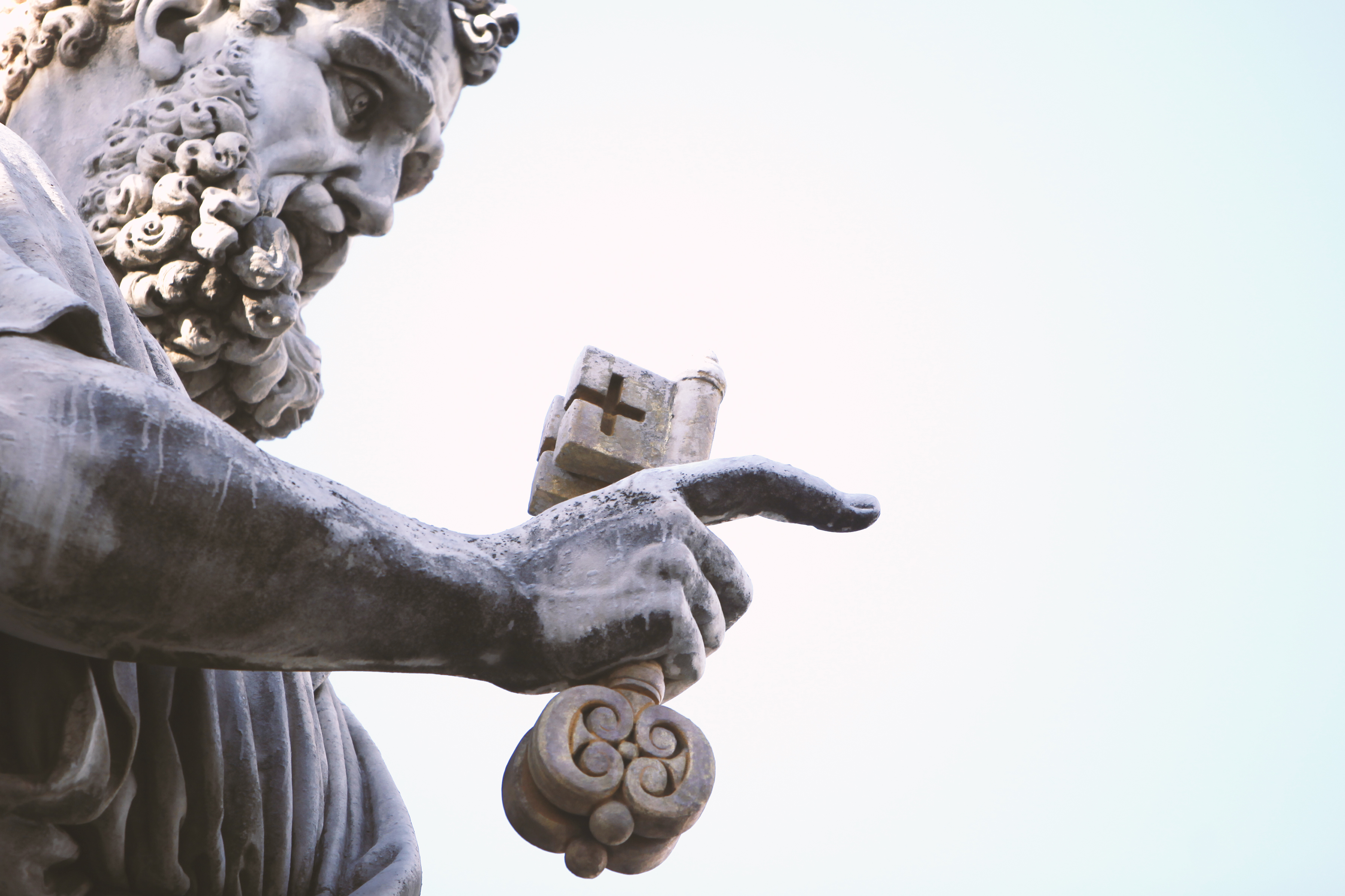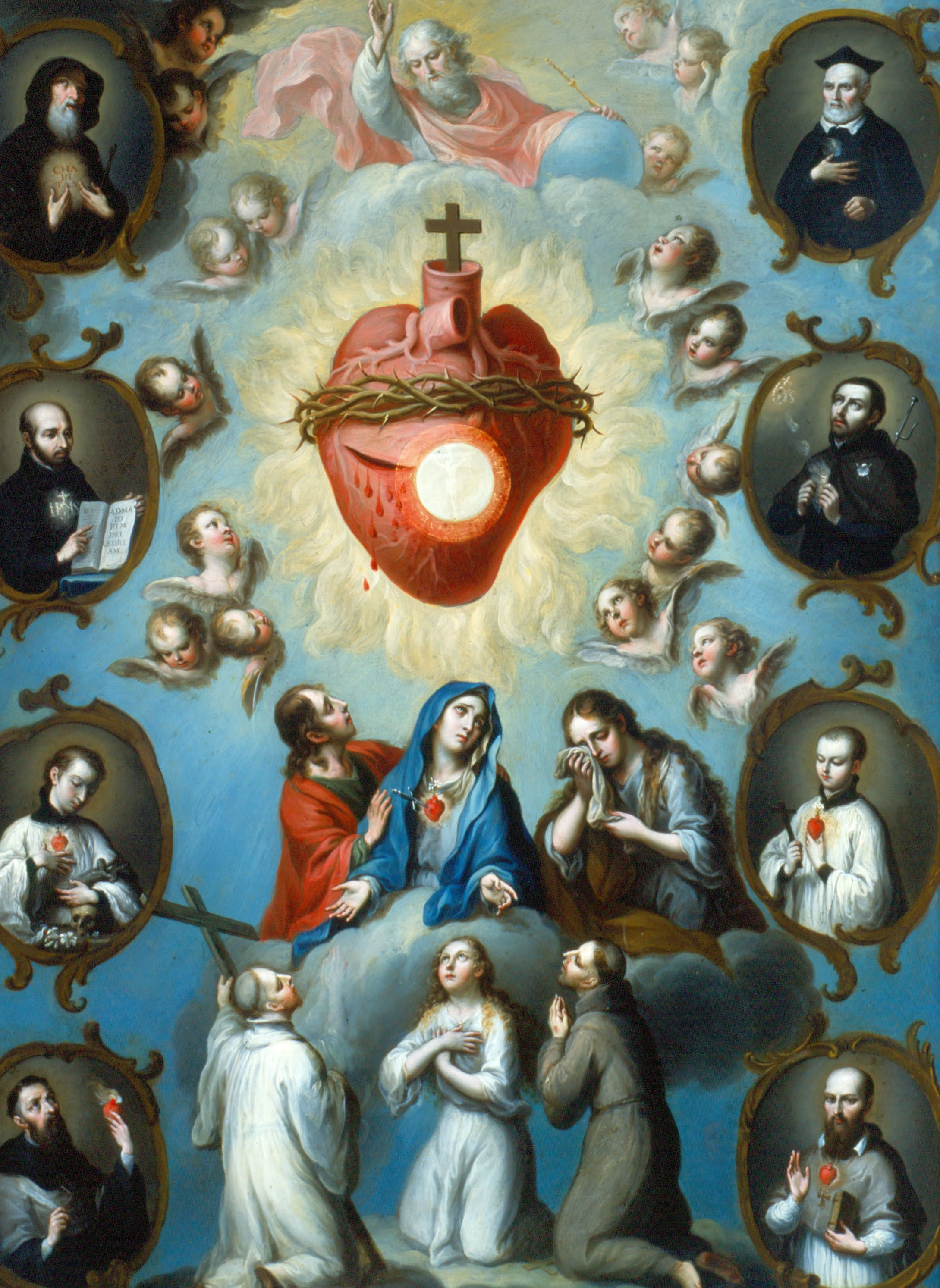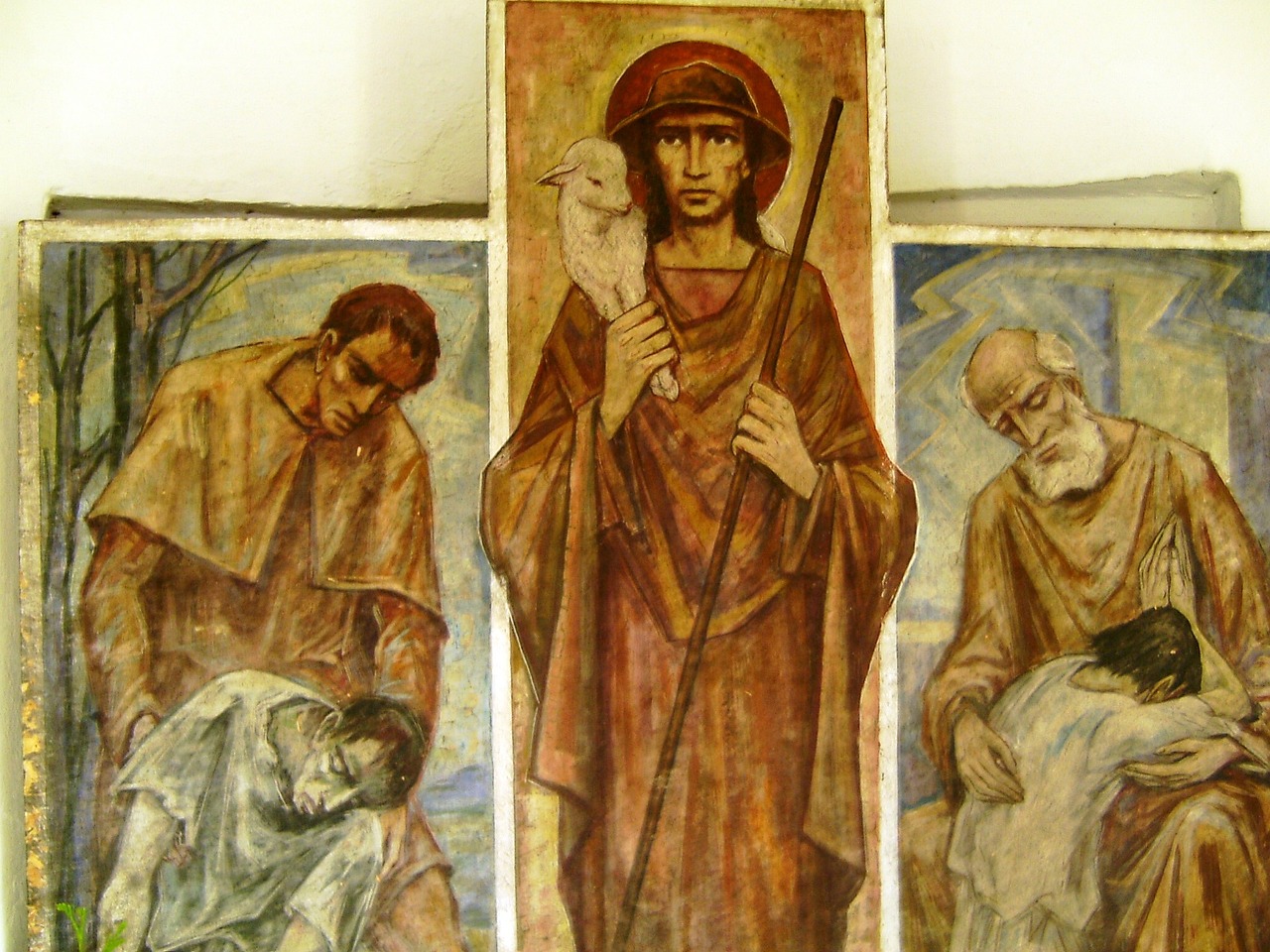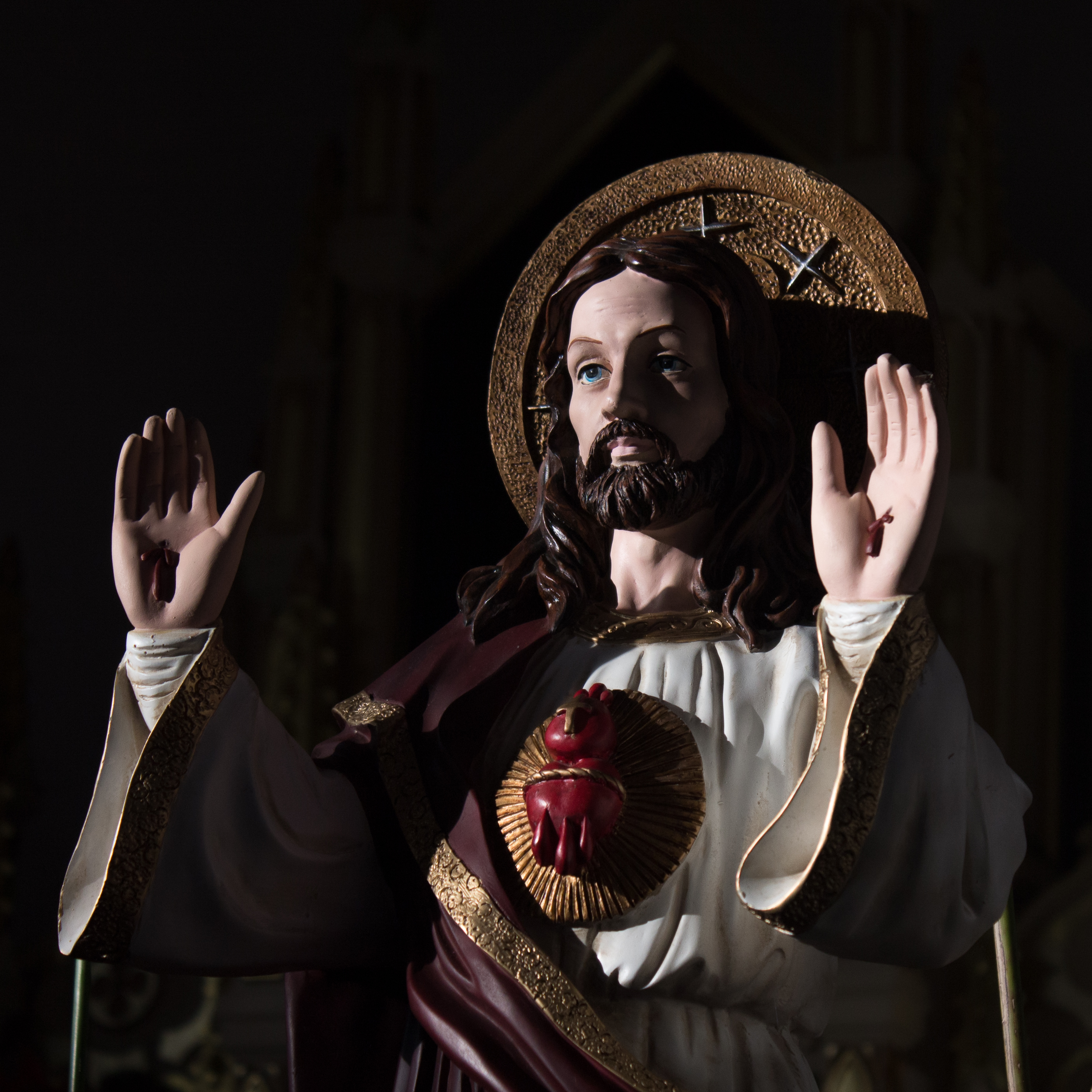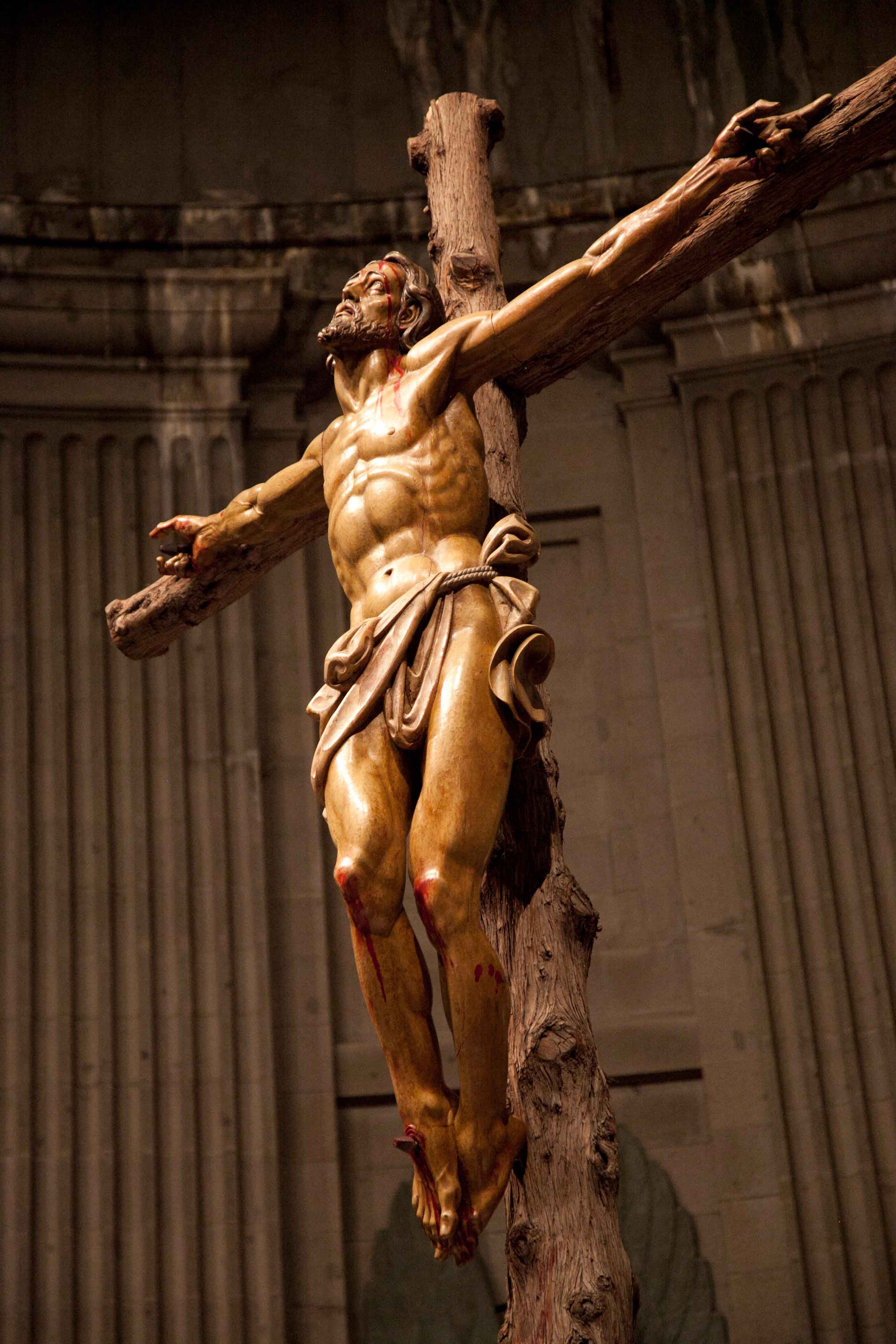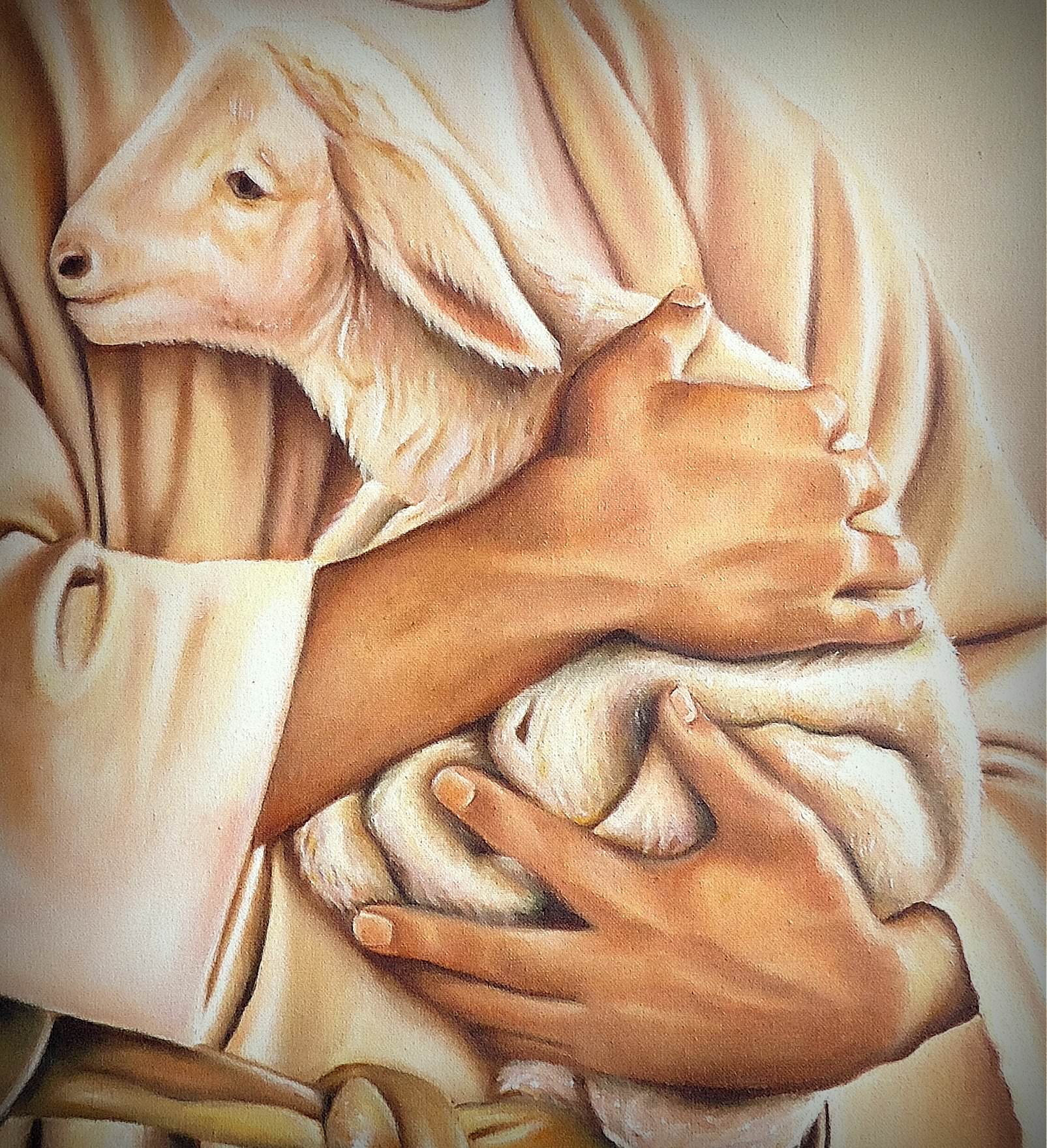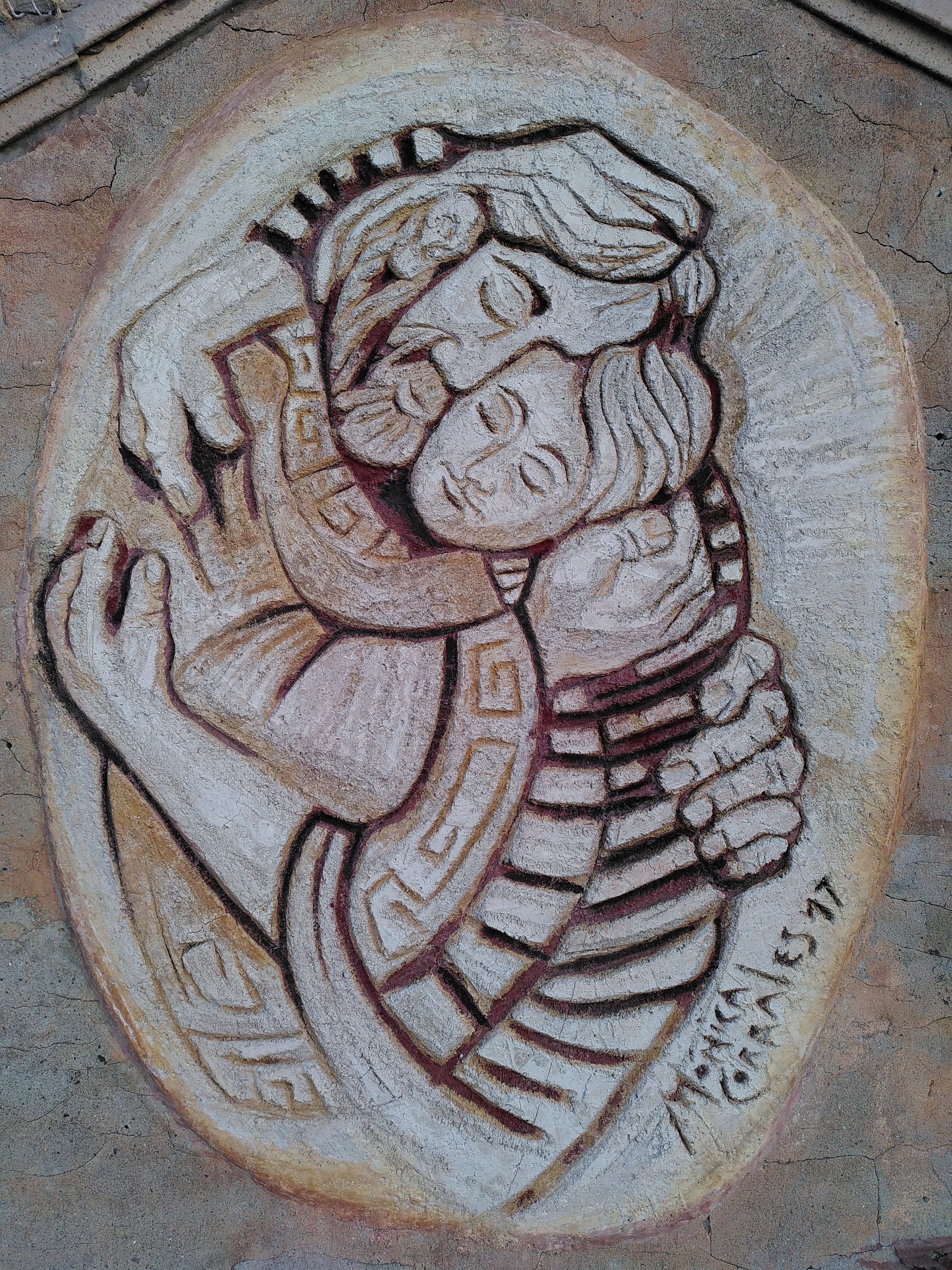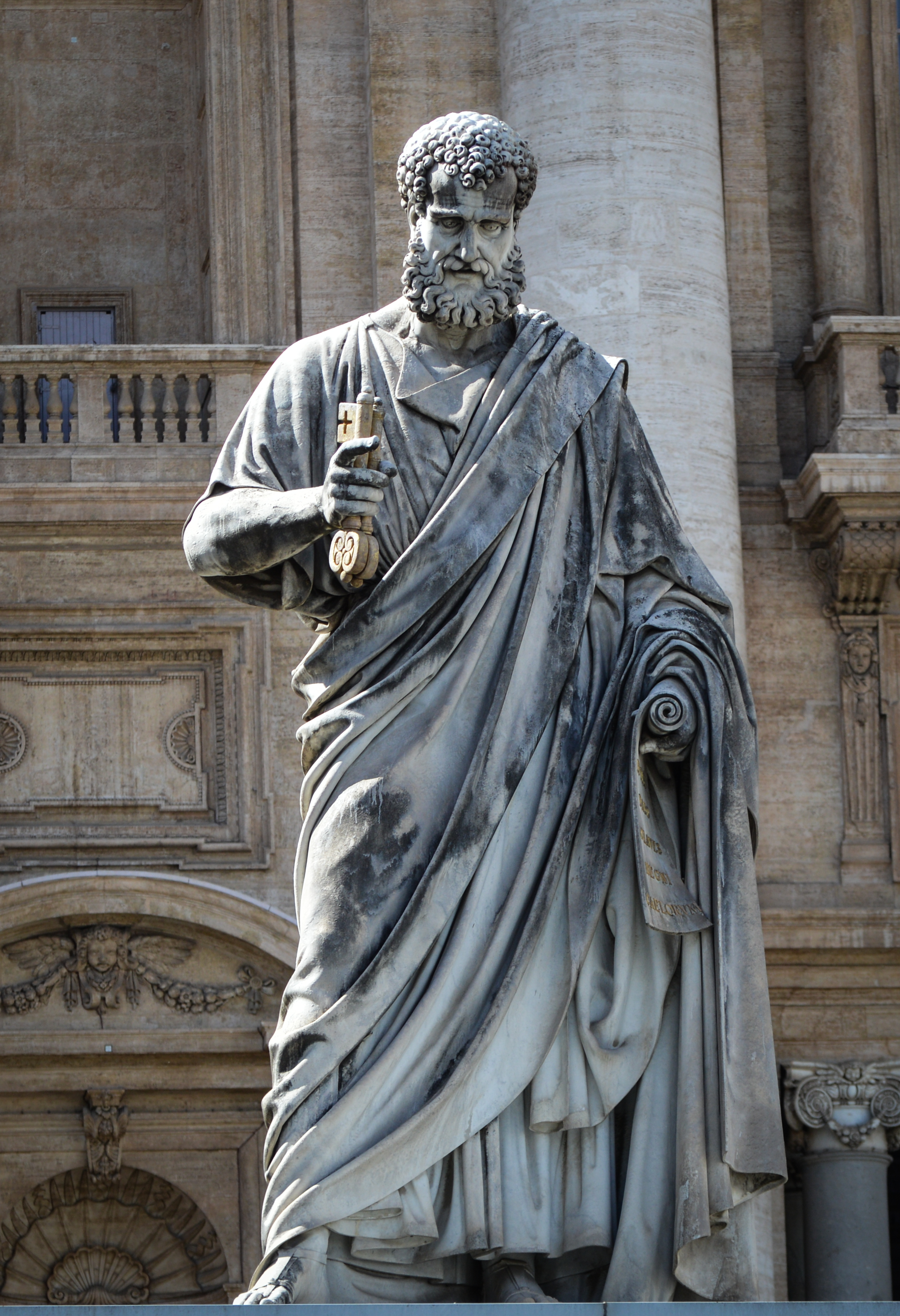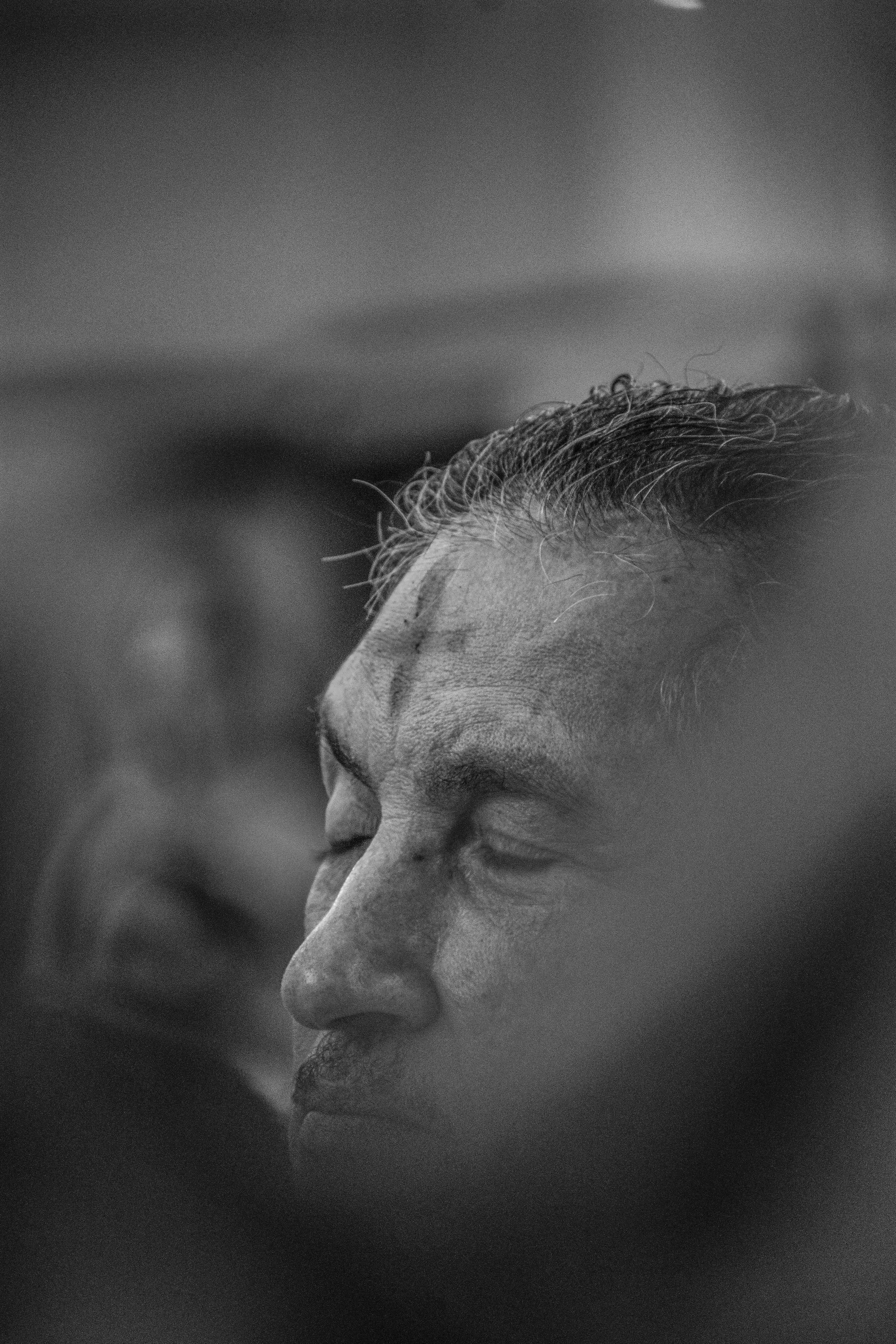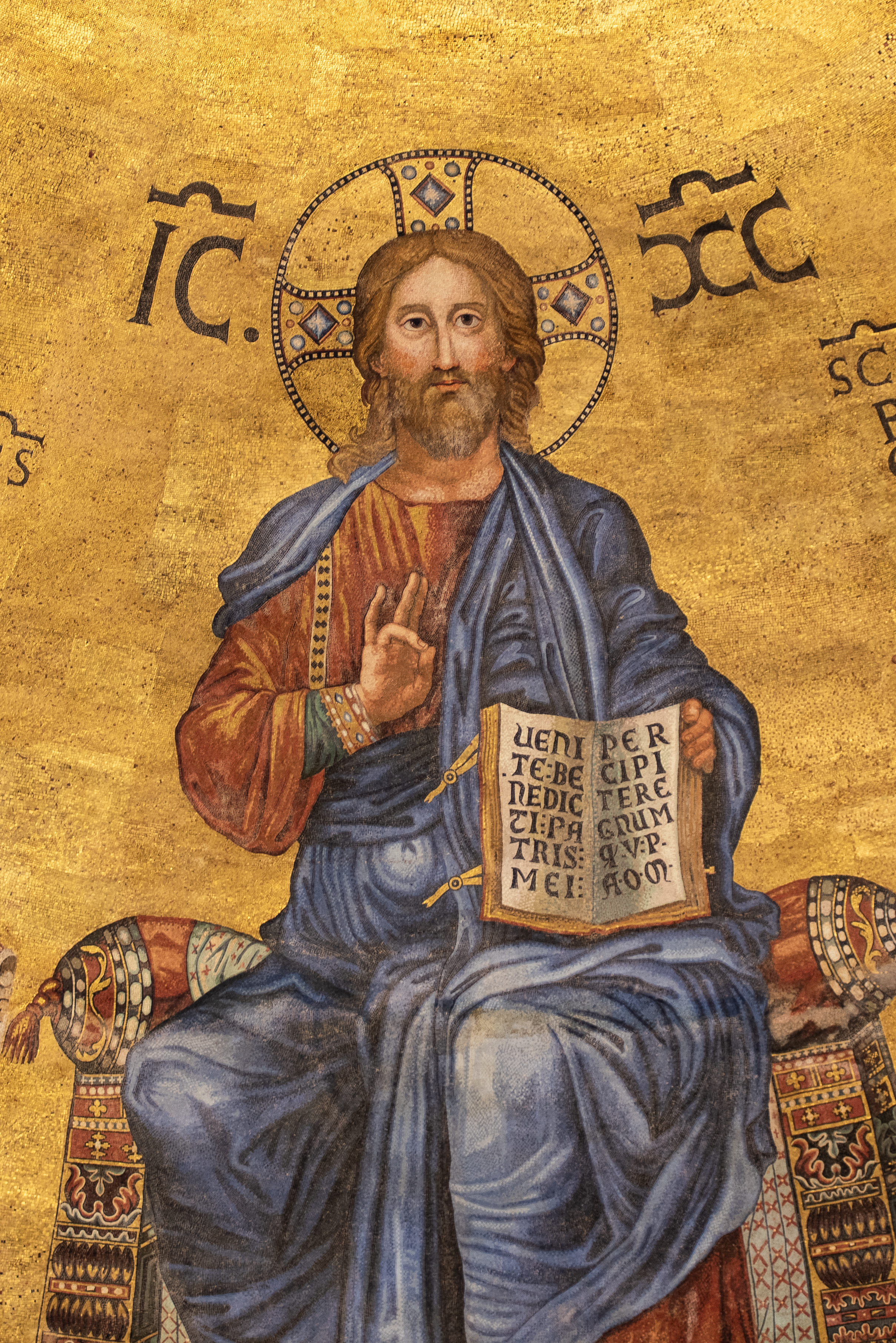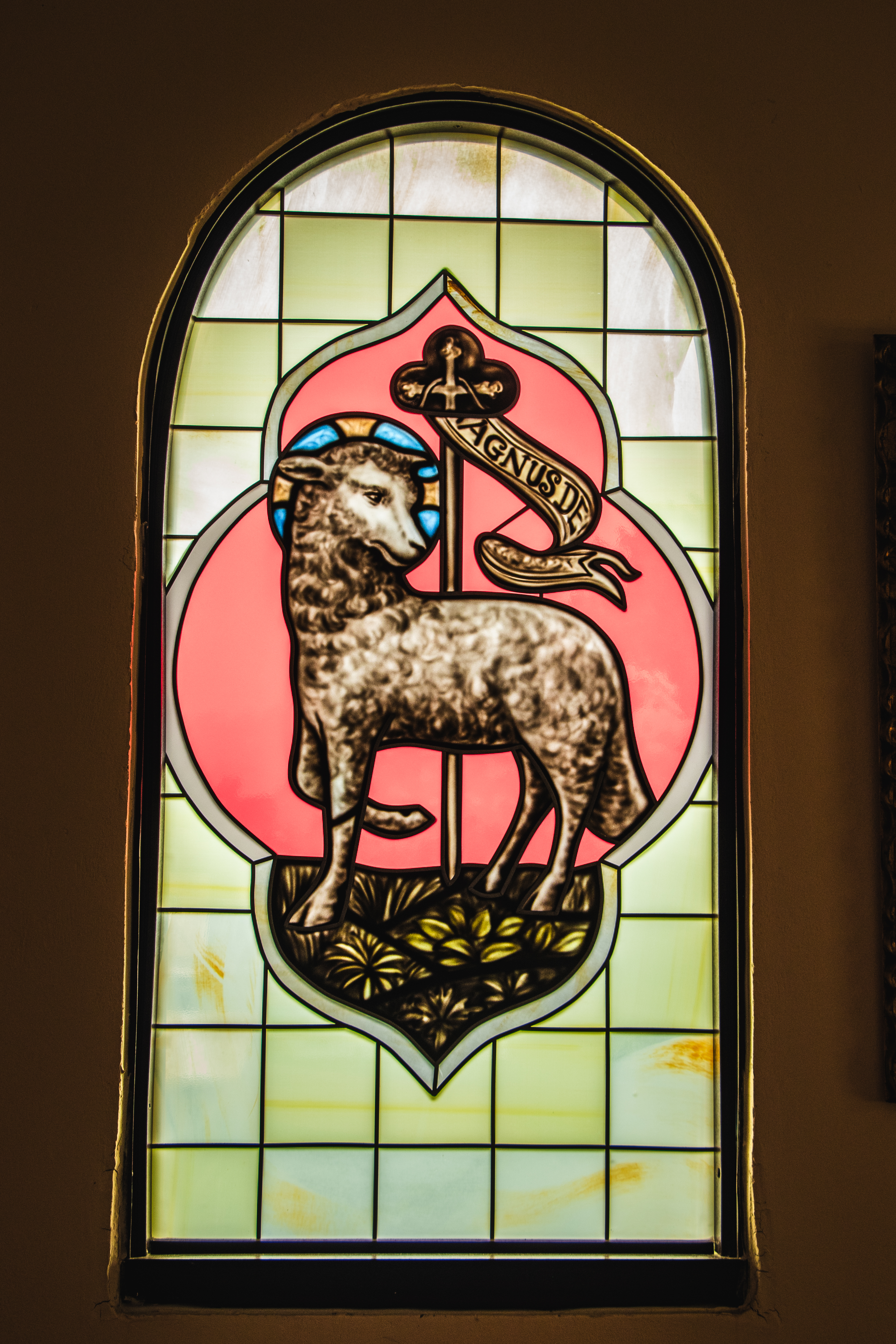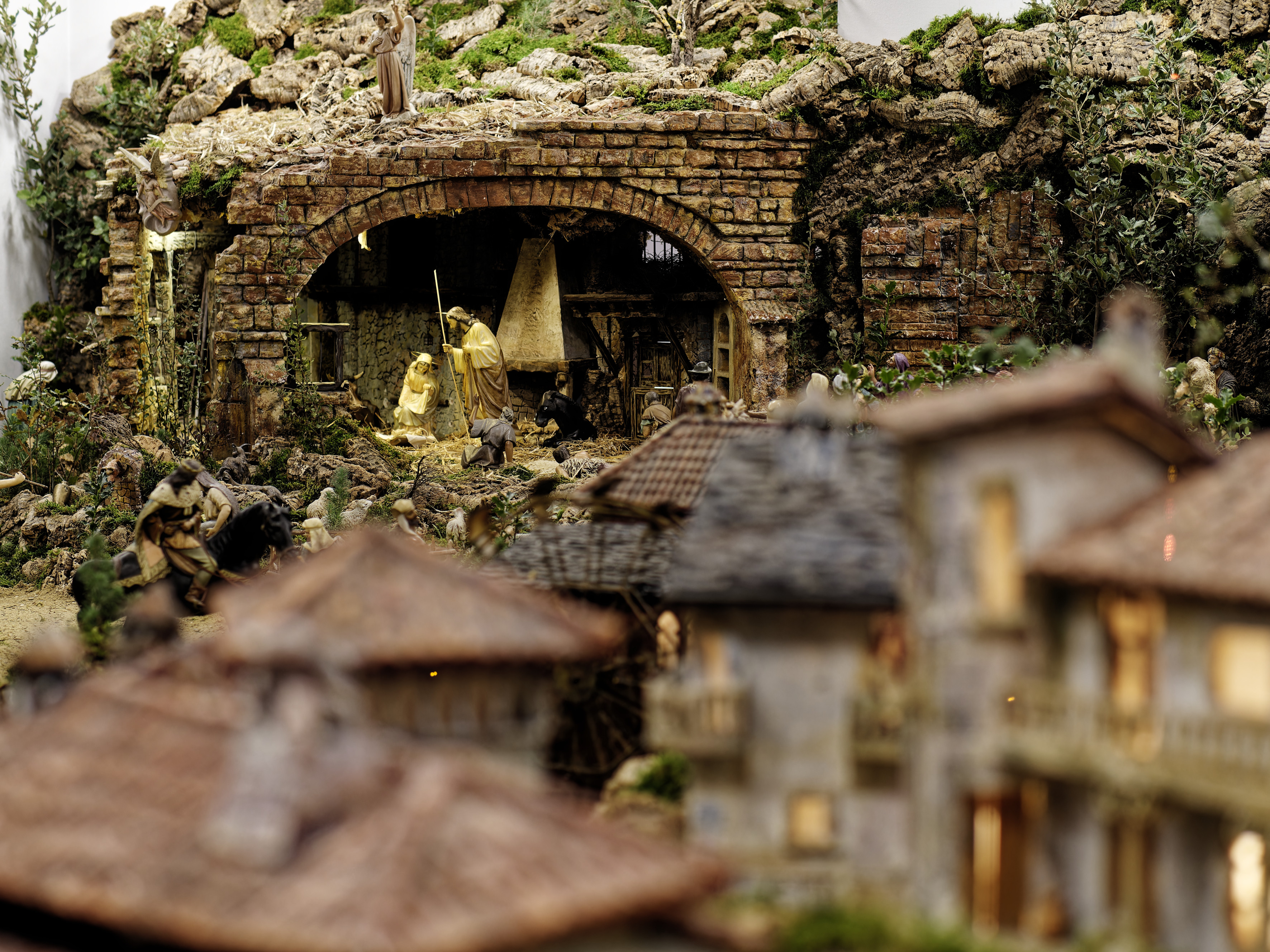Breakfast on the beach with Jesus would not have been enough to convince the deeply sorrowful Peter that he was still loved by Jesus, still trusted enough by Jesus to lead the Church. Peter, who had protested boldly that he would die for Jesus, had almost immediately denied his dear Friend and Savior, the One he had declared to be the Christ, the Son of God; three times during His most difficult hours, Peter said he did not even know Him.
Peter had wept bitterly over this betrayal, and his tears still probably flowed intermittently at the thought of it. And now, the once proud and outspoken Peter – Kepha, the Rock – was standing again face to face with the One he loved but had not supported in His time of need. How could he forgive himself and stand tall before him?
He could not. But Jesus, the ever-merciful, ever-loving, ever-generous One, could. We see the Savior not content to leave Peter in his sorrowful state of regret, but reaching down to allow him to attest to his love three times, to make up for his three denials. Even more, Jesus draws Peter into his own role as the Good Shepherd, commanding him three times to feed His sheep. Peter’s fear caused him to deny his Lord, which ruptured his closeness to Jesus; Jesus brings him even closer than his original friendship, elevating him to head of the new family of God, the one who shepherds his sheep.
Peter is called to let go of his previous fear and return to the Arms of Love – the disciple must love the Son as the Son loves the Father and the Father loves the Son, so that he can be drawn into that very love. “Follow me,” Jesus commands. Peter will ultimately give everything for this love, laying down his life as Jesus did. Like the Master before him, he will love unto death, in unconditional acceptance of the will of the Father, truly proving his love beyond words.
This is what Jesus offers each of us: in the sacrament of Confession, He offers His merciful forgiveness and restoration of all that our sins disfigure in us, and grace in abundance. Peter had wavered in the difficult hours of the Passion, but we witness Christ renewing him wholly and restoring him to the place he was called to fill: the Rock on which Jesus would build His Church, the primacy of authority over His Family on earth.
Desayunar en la playa con Jesús no habría sido suficiente para convencer a Pedro, que estaba profundamente afligido, de que Jesús todavía lo amaba y aún confiaba lo suficiente en él para dirigir la Iglesia. Pedro, que había protestado audazmente que moriría por Jesús, casi de inmediato había negado a su querido Amigo y Salvador, Aquel que había declarado ser el Cristo, el Hijo de Dios; Tres veces durante sus horas más difíciles, Pedro dijo que ni siquiera lo conocía.
Peter había llorado amargamente por esta traición, y sus lágrimas probablemente todavía fluían de vez en cuando al pensar en ello. Y ahora, el Pedro que era orgulloso y franco – Kepha, la Roca – estaba nuevamente frente a frente con Aquel a quien amaba pero a quien no había apoyado en Su momento de necesidad. ¿Cómo podría perdonarse a sí mismo y mantenerse erguido ante él?
La verdad es que no podría por sí mismo. Pero Jesús, el siempre misericordioso, siempre amoroso y siempre generoso, sí pudo. Vemos al Salvador no contento con dejar a Pedro en su doloroso estado de arrepentimiento, sino que se inclina para permitirle dar testimonio de su amor tres veces, para compensar sus tres negaciones. Aún más, Jesús atrae a Pedro a su propio papel de Buen Pastor, ordenándole tres veces que apaciente a sus ovejas. El miedo de Pedro le hizo negar a su Señor y rompió su cercanía a Jesús; Jesús lo acerca aún más que su amistad original, elevándolo a cabeza de la nueva familia de Dios, el que pastorea sus ovejas.
Pedro está llamado a dejar atrás su miedo anterior y regresar a los Brazos del Amor: el discípulo debe amar al Hijo como el Hijo ama al Padre y el Padre ama al Hijo, para que pueda ser atraído a ese mismo amor. “Sígueme”, ordena Jesús. Pedro, en última instancia, lo dará todo por este amor, entregando su vida como lo hizo Jesús. Como el Maestro antes que él, amará hasta la muerte, en aceptación incondicional de la voluntad del Padre, demostrando verdaderamente su amor más allá de las palabras.
Esto es lo que Jesús nos ofrece a cada uno de nosotros: en el sacramento de la Confesión, ofrece su perdón misericordioso y la restauración de todo lo que nuestros pecados desfiguran en nosotros, y gracia en abundancia. Pedro había vacilado en las horas difíciles de la Pasión, pero somos testigos de cómo Cristo lo renueva totalmente y lo devuelve al lugar que estaba llamado a ocupar: la Roca sobre la cual Jesús construiría Su Iglesia, la primacía de autoridad sobre Su Familia en la tierra.
 Kathryn Mulderink, MA, is married to Robert, Station Manager for Holy Family Radio. Together they have seven children (including Father Rob), and seven grandchildren. She is President of the local community of Secular Discalced Carmelites and has published five books and many articles. Over the last 30 years, she has worked as a teacher, headmistress, catechist, Pastoral Associate, and DRE, and as a writer and voice talent for Catholic Radio. Currently, she serves the Church by writing and speaking, and by collaborating with various parishes and to lead others to encounter Christ and engage their faith. Her website is www.KathrynTherese.com
Kathryn Mulderink, MA, is married to Robert, Station Manager for Holy Family Radio. Together they have seven children (including Father Rob), and seven grandchildren. She is President of the local community of Secular Discalced Carmelites and has published five books and many articles. Over the last 30 years, she has worked as a teacher, headmistress, catechist, Pastoral Associate, and DRE, and as a writer and voice talent for Catholic Radio. Currently, she serves the Church by writing and speaking, and by collaborating with various parishes and to lead others to encounter Christ and engage their faith. Her website is www.KathrynTherese.com
Feature Image Credit: Fernando Nunes, cathopic.com/photo/8745-saint-peter
